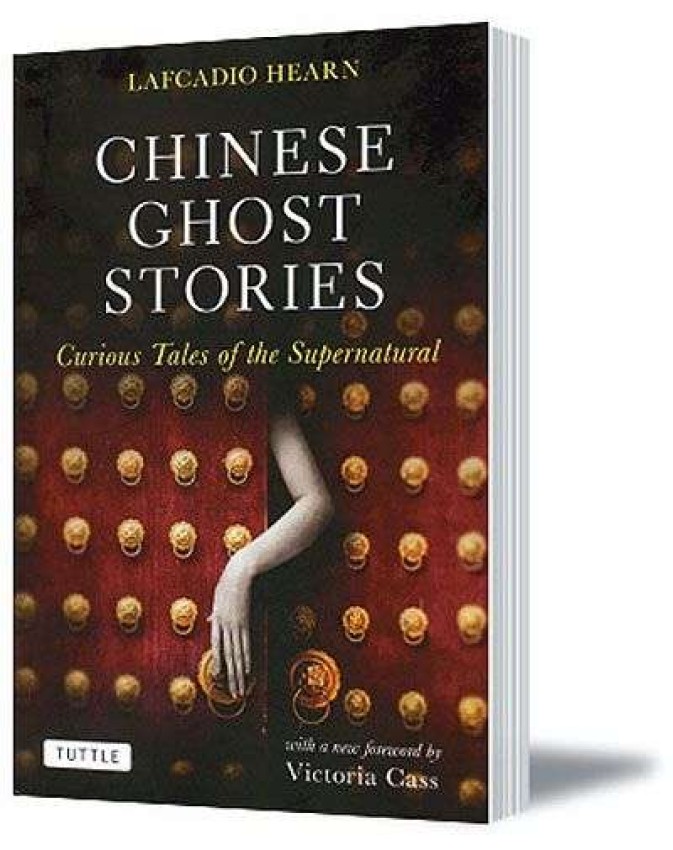Chinese Ghost Stories: Curious Tales of the Supernatural
A collection of ancient Chinese ghost stories translated into English by a 19th century scholar offers a glimpse into the legends that shape the country's culture
Bangkok Post
Published: 5/06/2011
Ghost stories have made a unique contribution to Chinese culture for thousands of years. While many Western scholars have mastered Chinese art forms such as ink painting and traditional music, few have become versed in the country's canon of ancient ghost stories.
Lafcadio Hearn was an exception. Born in Greece in 1850, but having spent most of his life in the US (1869-1889) and Japan (1890-1904), Hearn became famous for his prolific and insightful writings about Japanese culture, society and people.
He was also a celebrated translator of traditional literature from Asian countries into English, especially Japanese legends and ghost stories. His Kwaidan: Stories and Studies of Strange Things was adapted in part by film-maker Masaki Kobayashi for his 1965 cult classic Kwaidan, which won that year's special jury prize at the Cannes Film Festival.
His Chinese Ghost Stories features tales of heroic sacrifice and chilling horror along with poignant tales of hopeless love.
The beautiful Ge-Ai sacrifices her life for her beloved father and becomes a haunting presence in Beijing's Great Bell temple. Ming Yi of the Ming Dynasty (1368-1644) falls in love with a woman who turns out to be the soul of a celebrated female poet (Xue Tao) from the Tang Dynasty (618-907). Selfless son Dong sells himself to a wealthy lord to pay for a decent burial for his father and wins the compassion of the god of heaven, who sends a goddess ( Zhi Nv) to be his wife. Supreme judge Yan Zhenjing of the Tang Dynasty is killed by a rebel leader and becomes an immortal, helping to put down the rebellion.
Hearn employs a delicate touch in narrating these stories, which not only enhances their linguistic charm but makes for an exhilarating read. The elegant and dreamy scenes are captivating, although the charming characters come with the expectation of happy endings.
Lafcadio Hearn.
The evocative scene Hearn sets for a meeting between Ming Yi and Xue Tao in The Story of Ming Yi demonstrates his deft touch. ''That day all the air was drowsy with blossom perfume, and vibrant with the droning of bees. It seemed to Ming Yi that the path he followed had not been trodden by any other for many long years; the grass was tall upon it; vast trees on either side interlocked their mighty and moss-grown arms above him, be-shadowing the way; but the leafy obscurities quivered with bird-song, and the deep vistas of the wood were glorified by vapours of gold, and odorous with flower-breathing as a temple with incense.''
However, while he sets a romantic tone for the stories, Hearn doesn't veer far from the original Chinese stories. He weaves philosophical understanding into his retellings of the classical tales. In The Tradition of the Tea Plant, for example, he writes of ''the good of continence'', which is a core doctrine of traditional Chinese culture.
The stories the Soul of the Great Bell and The Return of Yan Zhenjing offer clues of how the author perceives sacrifice in the context of ancient China. While in the former, Ge-Ai's sacrifice is attributed to her love for her father, Yan's death in the latter is believed to be due to his faith in ''His Majesty the Son of Heaven''.
CHINESE GHOST STORIES: CURIOUS TALES OF THE SUPERNATURAL: By Lafcadio Hearn, 2011 Tuttle Publishing ,128pp. Available at all good bookshops, 395 baht.
Aside from exploring ancient, spiritual China, Hearn also delves into other parts of the country's culture, such as Chinese tea and porcelain in The Tradition of the Tea Plant and The Tale of the Porcelain God.
In addition to being the objects of adoration, some of the women in these stories are often the breadwinners for their families. This is strikingly different to modern China where men are expected to support and take care of women's material needs. This reflects the social context of the time from which the stories originated.
In ancient China, women were skilled food gatherers and performed most domestic tasks. They were viewed as a pillar of the economy and the social structure, while men, who only visited their spouses and children sporadically, played a smaller role in family life.
Hearn's narration reminded me of reading these stories as a child in a small village in southern China. The flavours are so alike that the language barrier does not seem to exist.
Writer: Xiangyang Tang
